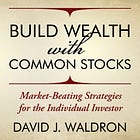Summary
Pfizer is a dividend-paying large-cap stock in the health care sector’s pharmaceuticals industry.
The company offers a wide range of medicines and vaccines in various therapeutic areas.
Despite expected post-pandemic declines in revenue growth, Pfizer’s management has shown continued positive performance in terms of net profit margin and returns on equity and invested capital.
In this updated research report, QVI reiterates its rating on PFE in the Expanded Portfolio.
When referencing this report, premium (paying) subscribers can access their Quality Value Investing (QVI) Glossary of Investing Terms and Metric Targets. Unless noted, all data presented is sourced from Seeking Alpha Premium as of the market close on September 6, 2023, and intended for illustration only.
Pfizer Value Proposition
QVI Research Report’s value proposition section provides a brief synopsis of the company’s business model, major-exchange listing, stock symbol, market capitalization, and dividend-paying status. In addition, it defines the competitive advantages of a company’s products or services to its customers compared to the industry, including the stock’s historical performance vs. the sector and market.
Pfizer, Inc. PFE 0.00%↑ is a dividend-paying large-cap stock in the healthcare sector’s pharmaceuticals industry. PFE was added to the QVI Expanded Portfolio on September 30, 2022, at a dividend- and split-adjusted $42.06 a share.
Pfizer, Inc., discovers, develops, manufactures, markets, distributes, and sells biopharmaceutical products worldwide.
It offers medicines and vaccines in various therapeutic areas, including cardiovascular metabolic, migraine, and women’s health under the Eliquis, Nurtec ODT/Vydura, and Premarin family brands; infectious diseases with unmet medical needs under the Prevnar family, Nimenrix, FSME/IMMUN-TicoVac, and Trumenba brands; and COVID-19 prevention and treatment, and potential future mRNA and antiviral products under the Comirnaty and Paxlovid brands.
The company also provides medicines and vaccines in various therapeutic areas, such as biosimilars for chronic immune and inflammatory diseases under the Xeljanz, Enbrel, Inflectra, Eucrisa/Staquis, and Cibinqo brands; amyloidosis, hemophilia, endocrine diseases, and sickle cell disease under the Vyndaqel family, Oxbryta, BeneFIX, and Genotropin brands; sterile injectable and anti-infective medicines under the Sulperazon, Medrol, Zavicefta, Zithromax, Vfend, and Panzyga brands; and biologics, small molecules, immunotherapies, and biosimilars under the Ibrance, Xtandi, Inlyta, Retacrit, Lorbrena, and Braftovi brands.
In addition, the company is involved in the contract manufacturing business. It serves wholesalers, retailers, hospitals, clinics, government agencies, pharmacies, individual provider offices, retail pharmacies, and integrated delivery systems, as well as disease control and prevention centers. The company has collaboration agreements with Bristol-Myers Squibb Company; Astellas Pharma US, Inc.; Myovant Sciences Ltd.; Merck KGaA; Valneva SE; BioNTech SE; and Arvinas, Inc., as well as strategic partnerships with CSPC Pharmaceutical Group Limited to launch a local brand of the COVID-19 oral therapeutic treatment Nirmatrelvir/Ritonavir in China, and collaboration with Carrick Therapeutics Limited.
Pfizer Inc. was founded in 1849 and is headquartered in New York, New York, USA.
QVI’s value proposition elevator pitch for Pfizer:
Despite substantial pandemic-era growth and cash windfalls from its COVID-19 vaccine and treatments, reversed by expected declines in the endemic, Pfizer’s drug pipeline is still improving.
Performance vs. Sector and Market
The chart below illustrates PFE’s performance against the Health Care Select Sector SPDR® Fund ETF (NYSE: XLV) and the SPDR® S&P 500 ETF Trust (NYSE: SPY) since being added to the QVI Portfolios in September 2022.
For example, after outperforming earlier in the coverage timeline, PFE has lagged its sector and the broader market in total return during the endemic.
Due Diligence Resources
For a more in-depth analysis of the all-important value proposition, visit Pfizer’s investor relations webpage and its most recent Form 10-K Annual Report submitted to the US Securities and Exchange Commission or SEC.
QVI’s value proposition rating for Pfizer: Bullish.
PFE Total Returns vs. XLV and SPY
Pfizer Inc (PFE) Total Return: -15.86%
Health Care Sel Sec SPDR RTF (XLV) TR: +10.48%
SPDR S&P 500 (SPY) Total Return: +27.32%
Since September 30, 2022 (as of September 6, 2023)Earn premium subscription rewards when referring friends, family, or colleagues to QVI:
PFE Shareholder Yields
QVI Research Report’s shareholder yields section uncovers the equity bond rate of the company’s common shares. It aims to quantify the yields on earnings, free cash flow, and dividends to measure how the targeted stock compares to the prevailing yield on the 10-Year Treasury benchmark note.
Earnings and Free Cash Flow Yields
The chart below demonstrates that PFE’s earnings yield traded above the QVI targeted floor at 10.91%. However, at 5.41%, PFE’s free cash flow yield traded under the threshold.
As inverse valuation multiples, the weighted shareholder yields suggest that PFE trades at a discount to earnings and a slight premium to free cash flow. QVI will further explore valuation multiples later in this report.
Dividend Yield
Pfizer offers a generous forward dividend yield of 4.73%, supported by a moderate 33.61% payout ratio, thus indicating a dividend rate with room for additional annual increases.
PFE yielded 3.90% from an annual payout of $1.64 on a split- and dividend-adjusted cost basis of $42.06 per share on September 30, 2022, the initial date of QVI’s addition of a slice of the company to the Expanded Portfolio. Thus, the yield-on-cost basis was -83 basis points [bps] less than the forward yield.
Average of Shareholder Yields
Quality Value Investing takes the average of the three shareholder yields to measure how the stock compares to the prevailing yield of 4.30% on the 10-Year Treasury benchmark note. For example, the average shareholder yield for PFE was 7.02% or +272 bps above the 10-Year and 6.74% or +244 bps above the Treasury yield when using QVI’s yield-on-cost basis.
QVI’s shareholder yields rating for PFE: Bullish.
PFE Shareholder Yields
Pfizer Inc (PFE) Price: $34.46
Pfizer Inc (PFE) Earnings Yield: 10.91%
Pfizer Inc (PFE) Free Cash Flow Yield: 5.41%
Pfizer Inc (PFE) Dividend Yield: 4.73%
One-Year Trailing (as of September 6, 2023)Pfizer Fundamentals
QVI Research Report’s fundamentals section measures the performance strength of the company’s senior management by analyzing revenue growth, net profit margin, and returns on equity and invested capital.
Revenue Growth and Net Profit Margin
Per the chart below, Pfizer had a three-year annualized mid-double-digit negative revenue growth of -54.10%, far underperforming the +6.83% median growth of the health care sector.
Farther down the income statement, Pfizer had a trailing three-year double-digit net profit margin of 27.55%, outperforming the sector’s median negative net margin of -5.79%.
Returns on Equity and Invested Capital
Pfizer’s management produced a trailing three-year return on equity or ROE of 22.58%, exceeding the targeted threshold and the sector’s median negative ROE of -43.52%.
Stock buyback programs often elevate ROE. For example, Pfizer’s board of directors authorized $2 billion in repurchases through March 2022 but has not reported any buybacks since then.
At 15.63%, Pfizer’s three-year return on invested capital, or ROIC, was above the QVI threshold, vastly outperforming the sector’s negative median ROIC of -22.62%, indicating that its senior executives are superior capital allocators.
In addition, Pfizer’s ROIC exceeded its weighted average cost of capital, or WACC, of 6.99%. (Source of WACC: GuruFocus).
Despite expected negative revenue growth following its pandemic windfall, its sector-beating profit margins and returns on equity and invested capital suggest that Pfizer’s management continues its long-tailed history of second-level performance in the Big Apple.
QVI’s fundamentals rating for Pfizer: Bullish.
PFE Returns on Management
Pfizer Inc (PFE) Revenue Growth: -54.10%
Pfizer Inc (PFE) Profit Margin: +27.55%
Pfizer Inc (PFE) Return on Equity: +22.58%
Pfizer Inc (PFE) Return on Invested Capital: +15.63%
Three-Year Trailing (as of September 6, 2023)PFE Valuation, Risks, and Investment Thesis
Next, QVI dives into the valuation multiples, downside risks, and overall investment thesis of Pfizer, Inc. (PFE), including potential catalysts. So, let’s dig further after reading the required disclosures and background information.
Disclosure: I/we have no beneficial long positions through the direct ownership of the common shares of any stocks mentioned. I wrote this report myself, and it expresses my own opinions. I am not receiving compensation for it other than from Substack paid subscriptions. I have no business relationship with any company whose stock is mentioned in this article.
Additional Disclosure: Quality Value Investing by David J. Waldron’s primary ticker research reports are for informational purposes only. The accuracy of the data cannot be guaranteed. Narrative and analytics are impersonal, i.e., not tailored to individual needs nor intended for portfolio construction beyond his family portfolio, which is presented solely for educational purposes. David is an individual investor and author, not an investment adviser. Readers should always engage in their own research or due diligence and consider (as appropriate) consulting a fee-only certified financial planner, licensed discount broker/dealer, flat fee registered investment adviser, certified public accountant, or specialized attorney before making any investment, income tax, or estate planning decisions.
About the Writer
David J. Waldron is the contributing editor of Quality Value Investing, and author of the international-selling book Build Wealth with Common Stocks: Market-Beating Strategies for the Individual Investor. David’s mission is to inspire the achievement of his readers’ financial goals and dreams. His work has been featured on Seeking Alpha, TalkMarkets, ValueWalk, MSN Money, Yahoo Finance, QAV (Australia’s #1 Value Investing Podcast), Money Life with Chuck Jaffe, LifeBlood with George Grombacher, The Acquirer’s Multiple, Amazon.com, Barnes & Noble, Apple Books, the BookLife Prize, and Publisher’s Weekly. David received a Bachelor of Science in business studies as a Garden State Scholar at Stockton University and completed The Practice of Management Program at Brown University.
Bonus: Founding Subscribers of QVI on Substack are eligible to receive a personalized complimentary copy of the case laminate hardcover edition of the book from the author.
PFE Valuation Multiples
Keep reading with a 7-day free trial
Subscribe to Quality Value Investing to keep reading this post and get 7 days of free access to the full post archives.







